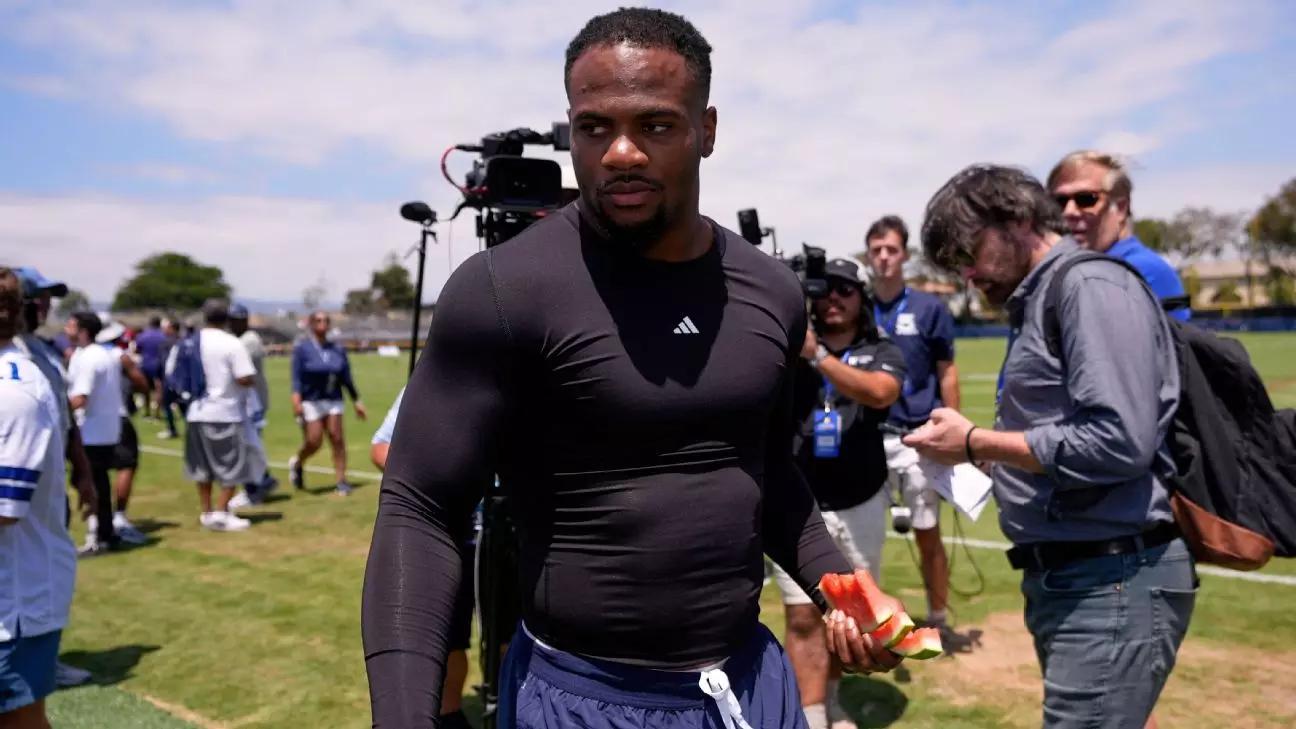In the high-stakes world of professional football, negotiations are often portrayed as battles of wills between franchise owners and players. The recent comments by Dallas Cowboys owner Jerry Jones about Micah Parsons underscore a disturbing pattern—an unwillingness to fully commit to the athletes who drive their franchises while maintaining a veneer of loyalty and fairness. Jones’s assertions that he offered Parsons the highest guaranteed money for a non-quarterback once again exemplify the industry’s tendency to elevate monetary guarantees as the pinnacle of value. Yet, beneath this rhetoric, there’s a clear implication that loyalty and fairness are secondary to ownership’s control. Parsons’ demand for a new deal, and the public spat that followed, highlight a systemic issue: the myth of absolute loyalty from players, especially when their value is evident on the field, confronts the reality of ownership’s desire to maintain leverage.
The narrative pushed by Jones—that he’s the one writing the check, that Parsons should respect the process, and that the agent’s role is secondary—reflects a power imbalance that is rooted more in control than mutual respect. This approach not only undermines trust but fosters an environment where players are viewed as commodities rather than partners. When a franchise values the player’s contribution, it should be willing to negotiate transparently and with genuine intent, not as a negotiation of dominance.
The Illusion of Negotiation as a Fair Process
The tone Jones adopts—claiming that negotiations have already been settled and that the agent has no stake in the process—reveals a fundamental misunderstanding of what a genuine contract negotiation should be. By stating, “I’ve agreed to give more money than has ever been given in guarantees,” Jones attempts to reframe the narrative around generosity rather than mutual agreement. But without direct negotiations involving Parsons himself, these statements are merely posturing designed to placate the media and fans.
Moreover, Jones’s comparison to Dak Prescott’s contract disputes reflects a flawed perception that players should accept ownership’s terms or face the consequences. This mentality dismisses the fact that players are professionals with agency and deserve to have their interests fairly represented. When Jones suggests the franchise tag as a fallback or an alternative, it reveals a worrisome tendency to view players’ careers through a transactional lens—things to be managed rather than negotiated as part of a shared journey. Such an approach risks eroding players’ trust, ultimately damaging the culture of the sport.
The Reality of Power Dynamics and the Need for Change
Jones’s willingness to let Parsons sit on the fifth-year option or threaten future franchise tags underscores a broader concern—ownership’s persistent desire to hold power over players’ careers. While such strategies might serve short-term franchise stability, they threaten long-term player loyalty and morale. The emphasis on “management” rather than partnership is symptomatic of a broader structural issue: athletes are often seen as interchangeable assets, whose contract negotiations are battles of wills rather than processes aimed at mutual benefit.
Parsons’s public stance—calling for leadership and transparency—challenges this outdated paradigm. His actions and statements are an implicit call for a more equitable system, where player contributions are truly valued, and negotiations are genuinely collaborative. As the league evolves, the disdain for players who demand fair compensation must shift toward recognizing their vital role as partners in success.
Jones’s comparisons to past negotiations and his insistence that contractual disputes mirror previous similar cases neglect the cultural and social shifts necessary for a more player-centric approach. The NFL must move beyond the myth that ownership has the sole authority to dictate terms, fostering instead an environment where players’ rights and contributions are recognized as fundamental to the sport’s future.
In sum, the ongoing saga between Parsons and the Cowboys is a microcosm of a larger issue: the need to redefine power and respect in sports negotiations. Genuine progress will require owners like Jones to relinquish some control and embrace a future where player-agent relationships are built on trust, transparency, and fairness, rather than dominance and posturing.

